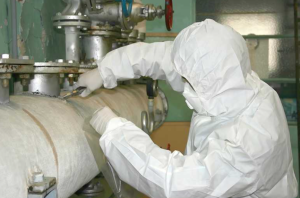The Impact of a Master of Physician Assistant on Healthcare Delivery

Healthcare delivery is increasingly complex, requiring skilled professionals who can provide high-quality care, improve patient outcomes, and support efficient healthcare systems. A master of physician assistant(MPA) degree equips individuals with advanced clinical knowledge, critical thinking skills, and leadership abilities to meet these demands. Institutions such as The UNT Health Fort Worth emphasize health education, health research, and health care, providing a strong foundation for MPA graduates to make meaningful contributions to the healthcare field.
Advanced Clinical Training
The MPA program offers rigorous training in anatomy, physiology, pharmacology, and diagnostic methods. This advanced education allows graduates to perform comprehensive patient assessments, develop treatment plans, and manage complex medical conditions under the supervision of physicians. By combining classroom instruction with hands-on clinical experience, MPA students gain the skills necessary to provide high-quality care across a variety of healthcare settings, including hospitals, clinics, and specialized care centers.
Expanding Access to Care
One significant impact of MPA graduates is their ability to expand access to healthcare services. Physician assistants often serve in underserved areas, rural communities, and regions with limited healthcare providers. Their presence helps reduce wait times, increase patient access to care, and improve overall population health. By collaborating with physicians and other healthcare professionals, MPA-trained clinicians ensure that patients receive timely and effective treatment, addressing critical gaps in healthcare delivery.
Enhancing Patient Outcomes
MPA graduates contribute directly to improved patient outcomes through their ability to provide patient-centered care. They perform diagnostic evaluations, prescribe medications, and implement evidence-based treatment plans tailored to individual needs. Their clinical expertise, combined with strong communication skills, enables them to educate patients about health management, preventive care, and treatment adherence. This comprehensive approach not only improves recovery rates but also reduces the risk of complications and hospital readmissions.
Leadership and Team Collaboration
In addition to clinical expertise, MPA programs prepare graduates for leadership roles within healthcare teams. Physician assistants often coordinate care, guide support staff, and participate in decision-making processes. Their training emphasizes collaboration, critical thinking, and ethical practice, ensuring that healthcare teams function efficiently and deliver high-quality services. These leadership skills enhance the overall performance of healthcare organizations and contribute to a positive patient experience.
Career Opportunities and Professional Growth
Graduates with a Master of Physician Assistant degree can pursue diverse career paths, including primary care, emergency medicine, surgical support, and specialty care. Their advanced training allows them to adapt to evolving healthcare needs, assume responsibilities traditionally held by physicians, and contribute to innovative care models. Continued professional development, such as certifications or specialized training, further enhances their impact on healthcare delivery.
Conclusion
The Master of Physician Assistant degree plays a critical role in modern healthcare delivery by combining advanced clinical training, leadership development, and patient-centered care. MPA graduates increase access to healthcare services, enhance patient outcomes, and strengthen interdisciplinary collaboration within healthcare teams. Programs like those offered by The UNT Health provide the education, clinical experience, and professional preparation needed to ensure that physician assistants can meet the challenges of a dynamic healthcare environment. By preparing skilled and adaptable healthcare professionals, the MPA contributes to more efficient, effective, and accessible healthcare for communities everywhere.





